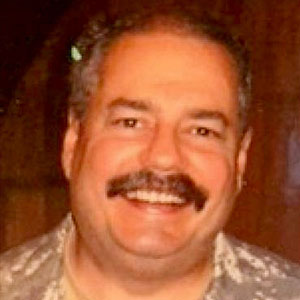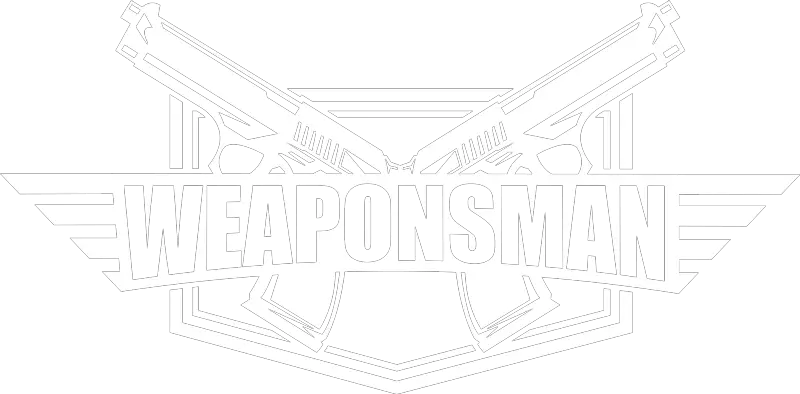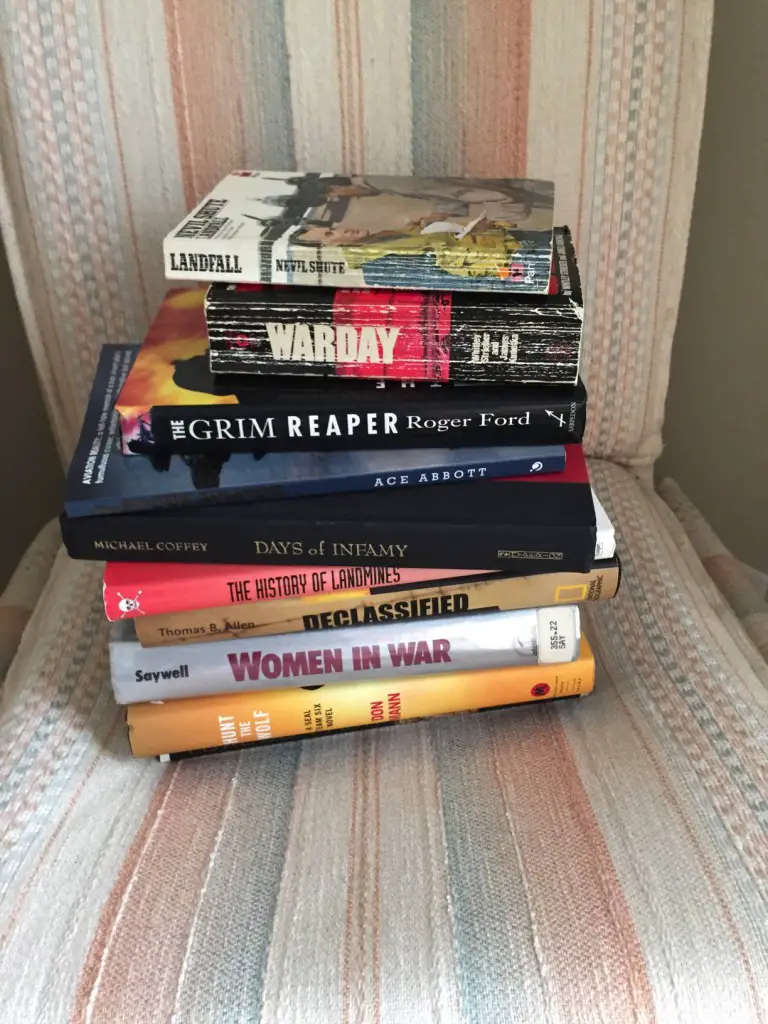This post will be slightly more personal than usual, and it will be written in the first person. You see, my mother was a remarkable and curious person who lived nearly 80 years and spent all of them trying to slake an insatiable curiosity, a fortunate malady that was among the inheritances she passed to her sons. This insatiable curiosity is manifested, among other things, as reading and love for books that falls somewhere along the scale where passion and obsession are found.
Today would have been her 79th birthday.
She was buying books, in hopes of reading them, short days before her death after a long and physically arduous complex of illnesses.
We had a sort of mother-son tradition, when I used to visit the folks in Florida: the Friends of the Martin County Library operate a large used book store on the grounds of a large flea market in Stuart, Florida, and we would go there one day every weekend (the store, which is staffed by volunteers, is only open on weekends when the market is open). We would each buy a stack of books. They would be different books, of course: she read fiction and loved taut, sophisticated mysteries, especially 20th Century British writers; I sought out military non-fiction, although she did urge some novels on me, and I was always a better man for each of them.
Two Sundays ago, I went without her, for the first time. It was, perhaps, a tribute. The image is my stack of books (minus a couple already distributed among the bathrooms down south at Hogney World). You may see some ideas from some of these books emerge in the blog. Most of them await my next visit and return, at the wheel of a car; this trip was in the human mailing tube we call an airliner.
An interesting set:
- Landfall by Nevil Shute, a novel of Bomber Command in the early years of the British bomber offensive. Nobody really understands the staggering casualties the bomber boys (British and American alike) took. Shute captures well the “live for today” ethos that resulted, and the fragile, flickering flame of hope that gave them hope for survival, and for life beyond the war. Some of them would even get that. Shute’s most-read novel, On the Beach, isn’t close to being his strongest.
- Warday by Whitley Streiber and James SomebodyIcan’tread [ETA: Kunetka] is one of those 1980s novels of nuclear devastation that served Soviet propaganda aims. Some of them were Soviet-sponsored, some were by independent fellow-travelers, and some were by people who weren’t on the Soviet side so much as they, too had been scared by all the nuclear propaganda. If I remember, Warday is not a good novel, and it’s a tossup whether it’s of the first or of the second set. Streiber was a writer for hire, and it’s not like the KGB paid its agents of influence in unconvertible rubles. But I got it as a period piece, kind of like Mein Kampf or an argument for the divine right of kings.
- The Grim Reaper by Roger Ford is pretty much straight in WeaponsMan’s wheelhouse: a history of the machine gun. It’s more of a social history than a technical one, and it’s pretty interesting so far. Ever hear of the Ager gun?
- The Rogue Aviator by Ace Abbott. Somehow we think “Ace” was not on his birth certificate. A personal memoir of military and airline aviation in the F-4 Phantom and 727 era; a quick read.
- Days of Infamy: Military Blunders of the 20th Century by Michael Coffey. As God is my witness, I opened this three times and read some of it, and can’t retain what it’s about. That’s not an especially good sign. Indeed, I only recovered the subtitle by googling the sucker. My impression was that there was nothing new or rare in there and that it had a snide Hollywood tone, and looking online, I see it is a companion book for a TV show. You might wonder how something so shallow gets published — well, the author is the editor of Publishers Weekly.
- The History of Landmines. I’ve already treated you to a detail or two from that. Good, slim, quality book by Mike Croll, a former British soldier and civilian mine removal expert. It turns out that ten years later, Mike rewrote and republished the book, now called Landmines in War and Peace.
- Declassified by Thomas B. Allen purports to be full of explosive declassified secrets, but a quick skim revealed nothing that hasn’t been covered in more depth elsewhere. This is an exploitation book to go with a TV series, which probably accounts for its superficial nature.
- Women in War by Shelley Saywell appears to be a 1980s propaganda tract by a feminist writer. Expect no humor whatsoever. Stories are selected for their Sisterhood Appeal and some are exaggerated; others apocryphal.
- Hunt the Wolf is a novel by former SEAL Don Mann; the protagonist is essentially a better Don Mann, but the book is a fun, fast read. One hopes that SEALs don’t “wing it” to the extent they do in this book.
- Tuxedo Park by Jennet Conant is the story of a wartime scientific lab sponsored by a secretive Wall Street potentate, told by his granddaughter and bearing on the “wizard war” of radars and sonars and passive detection systems.
In addition to those, there’s the bathroom books, including a photo history of SAAB and a couple others we can’t remember.
I have my receipt around here somewhere, but the total came to $28.

Kevin was a former Special Forces weapons man (MOS 18B, before the 18 series, 11B with Skill Qualification Indicator of S). His focus was on weapons: their history, effects and employment. He started WeaponsMan.com in 2011 and operated it until he passed away in 2017. His work is being preserved here at the request of his family.


27 thoughts on “A Tradition Upheld, Good Books Acquired”
The Bomber Command book reminds me of a remark my Dad once made. He served as a JO in the 3rd Infantry Division from the invasion of Sicily right to the end (wounded twice). He said that the air crews got shot at, but then went back to a hot meal and a warm bunk. He got shot at, ate dinner from a can and slept in the mud. A little dogface resentment.
Fun fact: 8th Air Force took more KIAs in WWII than the whole USMC.
Fun fact 2: There were often survivors from shot-down US bombers, because designers factored combat egress into the designs, and the US bombers attacked by day. So often all or most of a 10-man crew would fall into German captivity, but they’d come home at the end of the war. Meanwhile, there were seldom survivors from British bombers; gunners often had to egress their turrets into the a/c, then attach their chutes, then make their way to the crew door, and their missions were flown by night. So often all or most of a 5-man crew would never get out of the plane.
The Air Forces did have the glamor, if you lived to bask in it.
Bon chance!
One of my minders told me at the age of about three that “Books are our friends”.
Of all the phrases and lessons to stick in my head from that day to this, that one hung on like a kitten on the draperies, to the point that when I walk into the local B&N, I get concierge service and my own assigned cashier, with about 60′ of home shelves loaded floor to ceiling. And evidently, when stacked on any horizontal surface, books mate and reproduce like rabbits; I have no other explanation for the constantly expanding number hereabouts.
Barring a tragic house fire someday, I expect to someday play the Peter Ustinov character in Logan’s Run in real life.
“A man with a garden and a library will never lack for want of occupation, and need never leave his own home.”
Ustinov was also a novelist, you know. He wrote an amusing novel about an idiosyncratic Devil.
And a SOE operative, where he ran into an amusing fellow and Brit officer named David Niven.
Which is any number of never-written books I’d have loved to read.
Now I’ll have to track down that Ustinov novel.
After I climb over the books and find the door.
Here you go, old boy (the term seems appropriate, under the circs). Dead tree edition starting at a whole penny:
http://www.amazon.com/Old-Man-Mr-Smith-Fable/dp/155970134X/
Kindle ed for immediate gratification for vastly more money:
http://www.amazon.com/Old-Man-Mr-Smith-ebook/dp/B005DLE2ZK/
Here’s another novel that sounds like rollicking good fun, but I haven’t read it:
http://www.amazon.com/Krumnagel-Peter-Ustinov/dp/0434817082/
Thanks!
Perhaps I’ll order my mailman a truss too, if I’m going to start using Amazon as intended.
Wow, memories. I spent many of my formative early teens summers in Stuart FL in the late 70s, staying with the grandparents, working days on golf course grounds-keeping crews, and spending late summer evenings with a .22 rifle in what passes in Florida for woods (definitely NOT woods in the New England sense), shooting bricks of .22LR bought at the local (15 miles away) Kmart, not hitting much (hadn’t yet had proper instruction).
That area also had an excellent indoor used bookstore back in those days, selling softcover books for something like a nickel a piece, maybe a dime. I used to walk in there with $30 or so bucks from working the golf courses, walk out with boxes of science-fiction books, read ’em all in a week, then come back with another $30. 🙂
Good times.
-Andrew, @LawSelfDefense
I probably should have mentioned that my mom, in her 40s and 50s, owned two Annie’s Book Swap outlets on Cape Cod, so she knew the used book business from both ends. Most of the used bookstores I have known have gone radio silent, from the excellent Ben Franklin Bookstore next to the Worcester Telegram & Gazette, to the Annie’s chain, to the many quirky little shops here and there. There was an incredible one in Fayetteville, NC, that always seemed to get the whole libraries of colonels and sergeants major who passed on.
Think I bought some used books in an Annie’s on Cape Cod, but would have been, oh, 5 years ago, not a few decades ago. Oh, freck, maybe 10 years. ago. Damn, I’m old. Maybe same store, under new management? 🙂
They actually had a very good SF collection, got some interesting beach reading.
-Andrew, @LawSelfDefense
There was one in Falmouth and one in S. Dennis on Route 28 IIRC. Mom sold both as going concerns. The Falmouth one didn’t last long but the Dennis one did… think it’s gone now. Lady that bought it was very nice, named Maxine, she and her husband. Science Fiction and non fiction (other than diet and self-help NF) were both hard to keep in stock as the readers seemed to hoard them! I remember swapping big boxes of books by genre with other Annie’s outlets.
Dennis on Route 28 (the Cape’s version of the Long Island Expressway during season), that was the one. Nice store. Re-read some Sci-Fi from my youth out of that place. Heinlein, Stainless Steel Rat, lots of good stuff. 🙂
-Andrew
I take my elderly mother to the library nearly every Sunday. The books are “a buck a bag”. Last trip I picked up three Tom Clancy’s, good as new, an Oliver North novel “Mission Comprimised” and General Norman S’s autobiography. So many books…so little time.
Your mom must be a wonderful lady
Another one I would recommend is “Bomber Command” by Max Hastings. Very detailed look at it from beginning to end of the war. And that “Bomber” Harris did not receive a peerage at the end of the war like the rest of the commanders and was “offered no further employment by the RAF” at the end of the war.
“Bomber” Harris was fortunate the Other Side did not win. Having massacred c. 600,000 central European civilians, he’d have stretched a short rope. And don’t tell me the “Germans attacked cities first”. As between Britain and Germany, Churchill, not Hitler, ordered the first city-busting area attack: a 100-bomber raid on Berlin. And you can take Max Hastings and all his “it was a good war, we smote the evil Hun” ilk, and shove ’em somewhere the sun don’t shine
The guy behind the idea was actually an italian, Guilio Douhet, and he had retired (and, I think, died) by war’s outbreak. His idea was expressed not in a technical or policy book but in a novel.
You seem to be missing the Douhet-inspired attacks on Guernica and Rotterdam. (Some of the first indicators that Douhet’s theory was all wet, even though the US and UK would prosecute it with unparalleled vigor).
Guernica was Spanish CW, I meant re WW II. Germans sent recall order on Rotterdam, as the city had already surrendered, but of one the three Bomber formations didn’t get it. Quite a number of German officers went out into the streets in a desperate effort to signal the bombers away, and were killed along with many Dutch civilians; I’ll give the Luftwaffe a pass on this one. Also, I wrote “as between Britain and Germany…”
They started it.
If you play with fire, you’ll get burned.
My condolences for your loss. Never was much of a rouge but started my career in the 727. The old three-holer Jurassic Jet was an honest airplane lacking today’s “magic” but I enjoyed my time with her nonetheless. Good memories.
Ace seems to have had really bad judgment in airlines… he flogged his type rating to every questionable airline in the Western Hemisphere. He says he averaged $35k a year as a captain… for ten years.
You still see the old three-holers in South America where nobody cares about noise. Damn, they’re loud by today’s measures.
I have a soft spot for Nevil Shute. My Grandfather- a smart, interesting man whom I dearly miss, called him his favorite. Schute’s books make me feel like I have spoken with him a bit.
I have seen an Agar gun up close, I think they are even California legal like the Nordenfelt. I can highly recommend “ABE Books”, the American Booksellers Exchange to anyone looking for something hard to find.
You might try Barry Eisler’s works if you want some good fiction, or Larry Correia’s “Monster Hunter International” which has the best hook I have seen in a long time… “One day I lived the American Dream, I threw my boss out of a 14th floor window”.
I guess “On the Beach” was a phenomenon of its time; I was completely underwhelmed by it when I read it in the 1970s.
Shute’s other work tended to be of the old-fashioned British style which puts me to sleep, though my wife vacuums the stuff up. “Trustee from the Toolroom” has a dose of that… but if you haven’t read it, it’s a bit different from Shute’s other work.
I was going to say try Shute’s Round the Bend. Zen and the Art of Motorcycle Maintenance meets a mid and far east airline in the post WWII era. Sort of the same man trying to find himself after war thing as Maugham’s The Razor’s Edge.
Everything Shute wrote is worth the time spent reading it. I particularly like the fact that his books are full of decent, honest people of good will, sometimes in opposition, trying their best.
Few know he was, before being a novelist, a serious aeronautical engineer.
http://en.wikipedia.org/wiki/Nevil_Shute
Shute was an interesting man. He was an aeronautical engineer in the early ’30s who helped in the design of the R-101(I believe) airship. Also founded and ran his own aircraft manufacturing company during that time. He started writing about the same time so some of his stuff might appear dated to the jaded American reader. He himself said that he did not consider “On The Beach” to be one of his better ones.
His stuff does seem to have stood the test of time though; if one is inclined toward well crafted stories of human interest.